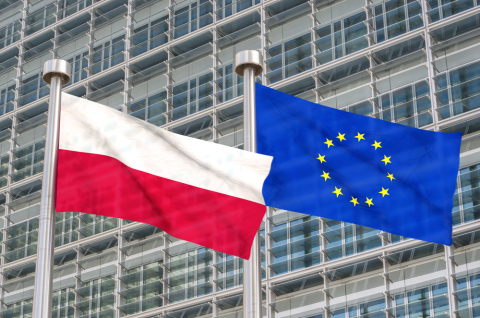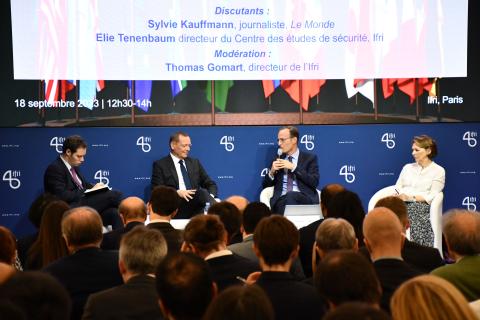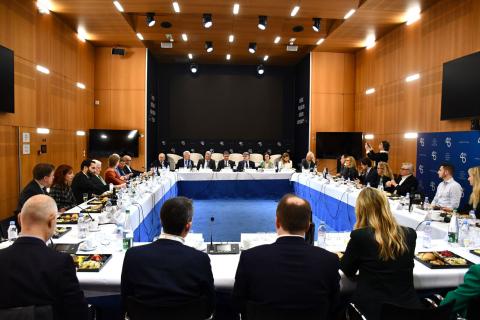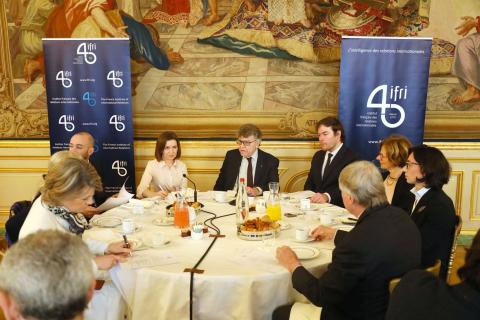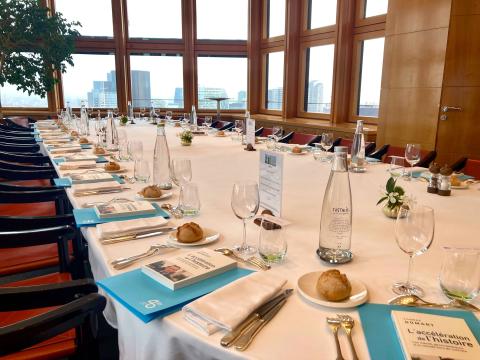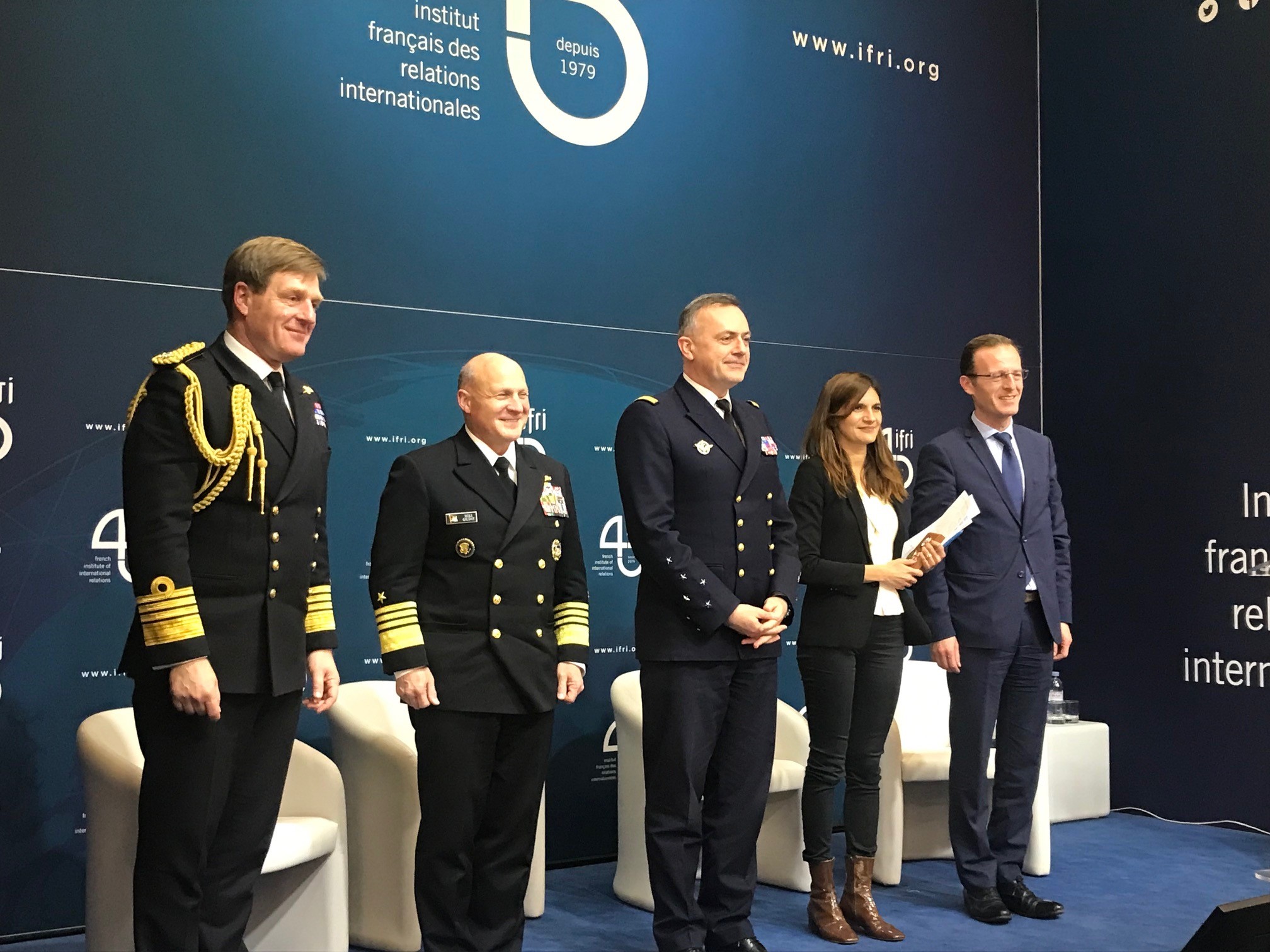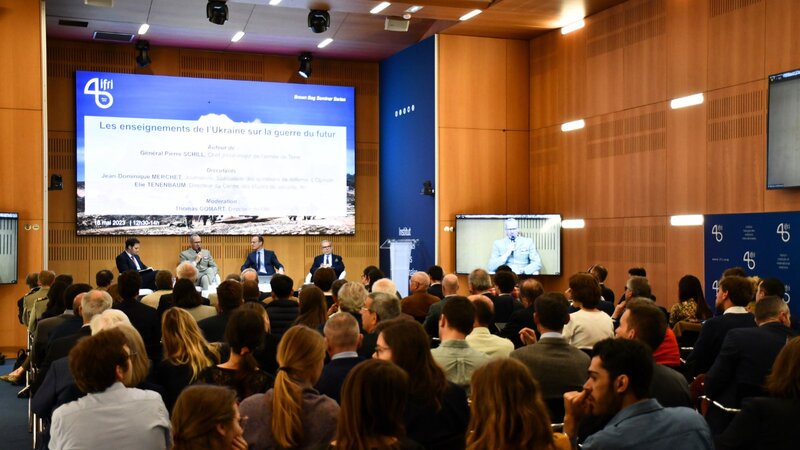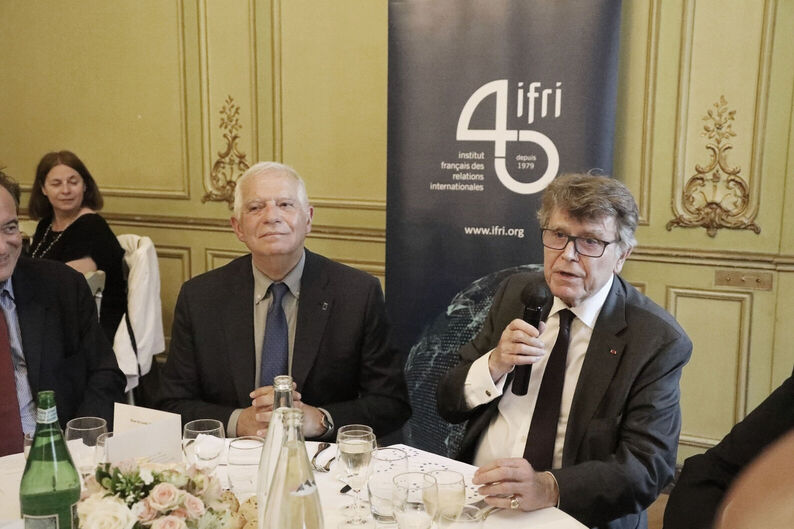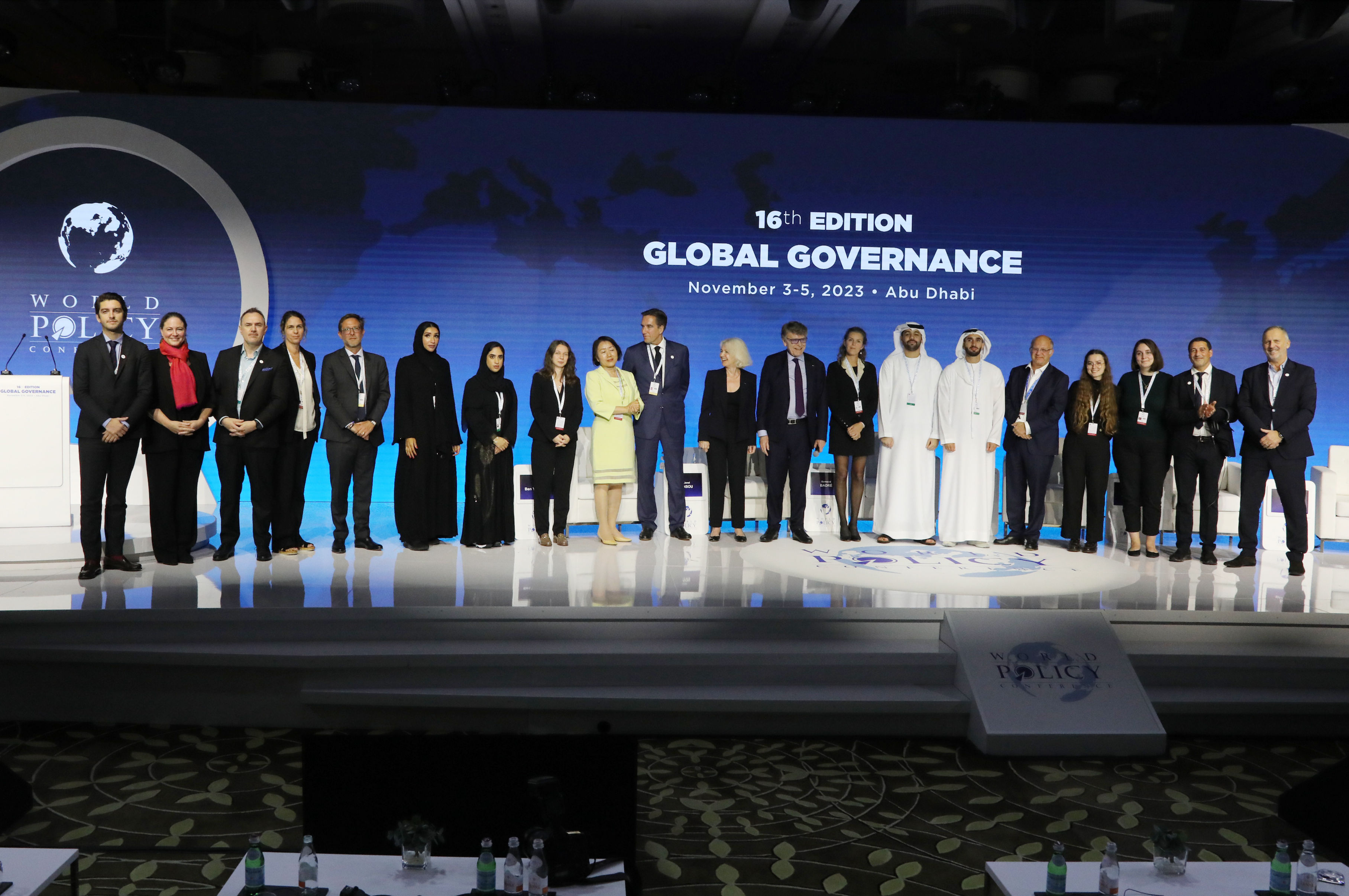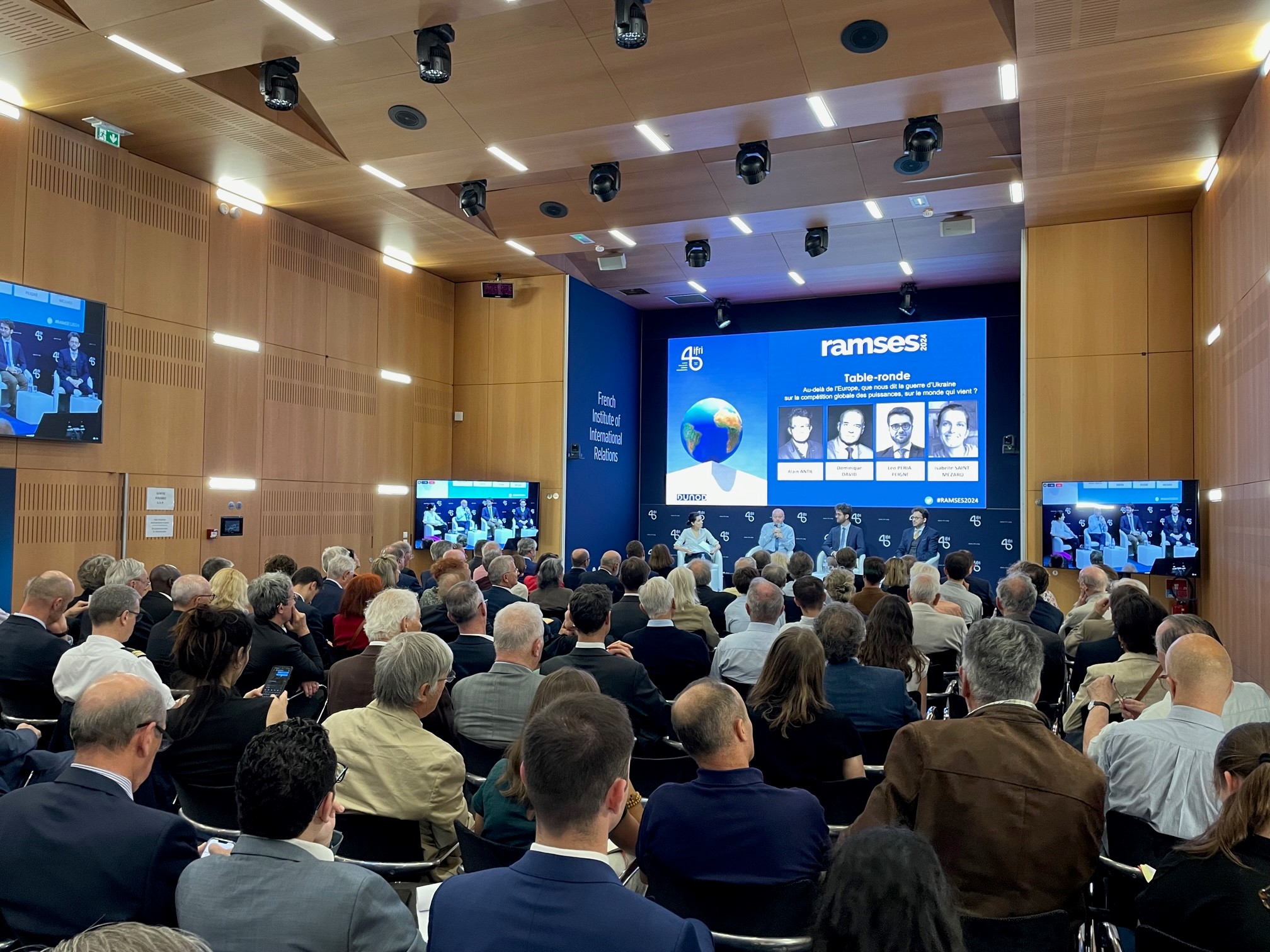
Titre
Events
Filter results
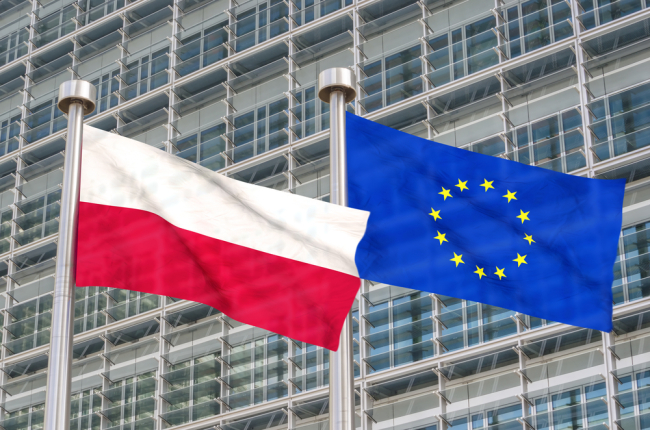
Affirming European security in times of uncertainty. Poland’s priorities of its presidency of the Council
Poland will assume the presidency of the Council of the EU throughout the first semester of 2025, when geopolitical tensions are likely to peak.

Paris Naval Conference 2025: Naval Power in support of Maritime Economy
This third edition of the Paris Naval Conference (CNP), bringing together high-level speakers from the military, industry and academia, aims to address the issues of securing the maritime economy for the world's navies.
Filter results
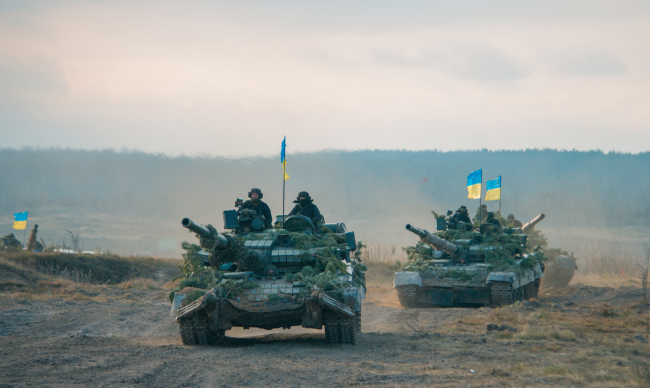
Reading the Russian-Ukraine War: A Look at Western Analytic Failures
After three years of war, the situation in Ukraine is still dire, with a lot of uncertaineties on the battlefield. But this fog of war has begun from the very outset of the conflict. Strategic research and analyses have been marred with biases and misjudgments that tell a different story about Western perception and preferences in warfare. This is the claim of a CSIS report authored last September by Prof. Eliot A. Cohen, Prof. Phillips O'Brien and foreword by Prof. Hew Stracham.
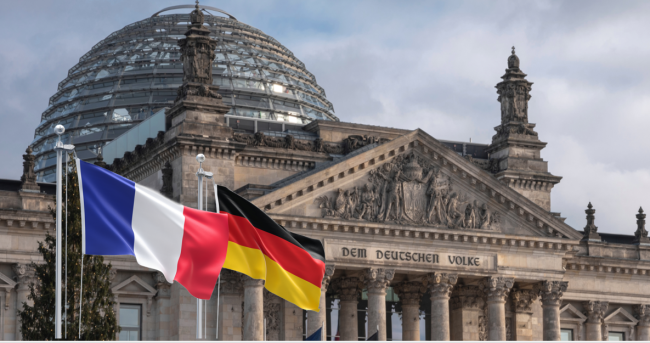
70 Years of Franco-German Relations: Between Heritage and Future Challenges
The Study Committee on Franco-German Relations (Cerfa) is celebrating its 70th anniversary this year.
The Cerfa was created in 1954 by an intergovernmental agreement between the Federal Republic of Germany and France, against a backdrop of Franco-German reconciliation. Belonging to the French Institute of International Relations (Ifri) since its creation in 1979 by Thierry de Montbrial, it is one of its pillars.

The Future European Space Law: a New Model of Development?
As a new European Commission prepares to define the Union's strategic priorities, the objectives and content of the future space law are being called into question. How can Europe respond to the new economic, geopolitical and ecological challenges posed by space?
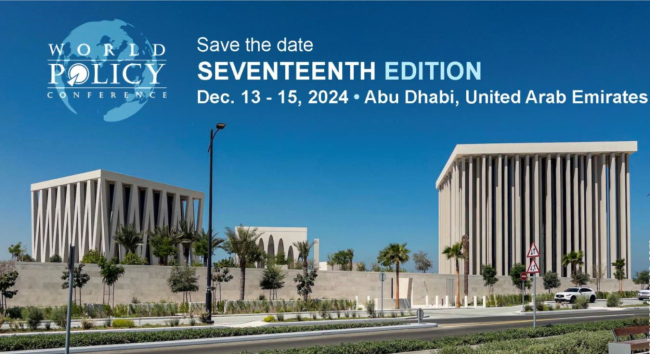
17th edition of the World Policy Conference - Abu Dhabi, United Arab Emirates
Founded in 2008 by Thierry de Montbrial, Chairman of the French Institute of International Relations (Ifri), the World Policy Conference (WPC) will be holding its seventeenth edition on December 13-15, 2024, in Abu Dhabi, United Arab Emirates.

The Privatization of Security in Central and East Africa
Many states in sub-Saharan Africa face situations of fragility that have led them to withdraw from some of their responsibilities, including their core sovereign functions. This withdrawal has opened the door to a plurality of national and international actors, both for funding and operational activities (NGOs, associations, private companies, international organizations, etc.). This trend, which varies in form and intensity across countries, has not spared the security sector.

What to expect from the Trump 2 administration?
Donald Trump's re-election to the White House is an extraordinary event that reshuffles the cards of the American political landscape.
The 23rd edition of the Ifri's Annual Conference on the United States will seek to better understand the significance and consequences of this election in terms of the country's economic and trade policy, the reshaping of its domestic political balance, as well as its foreign policy and transatlantic relations.
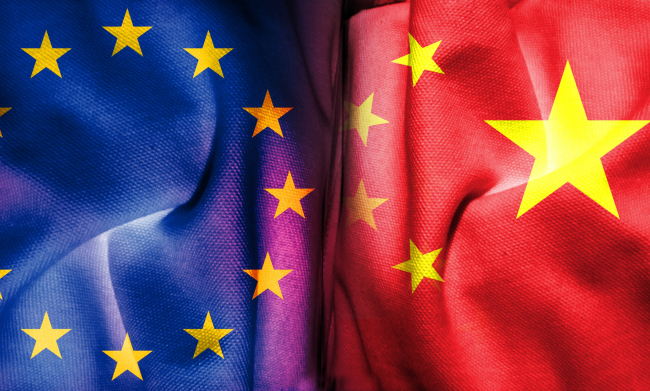
EU member states facing China’s economic statecraft
Lithuania provides a useful case study in China’s use of coercive economic and diplomatic pressure in pursuit of its foreign policy goals.
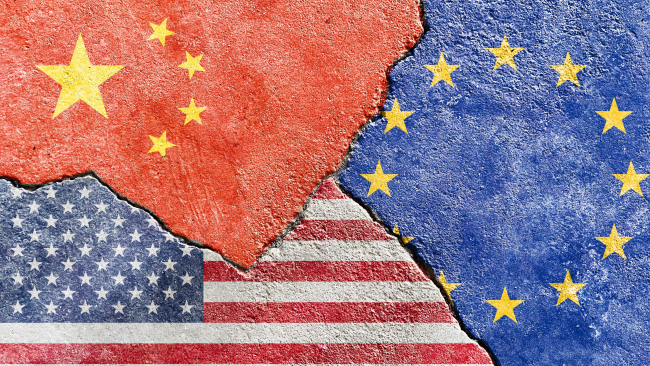
The European Union in Competition with the United States and China. How to Balance Free Trade, Competitiveness and Economic Security?
As the geopolitical context has changed, so has the approach to international economic relations and the rules-based multilateral framework. Covid and Russia’s war against Ukraine have exposed the risks of extended supply chains and of having become dependent on a single supplier.

Fragilized Clean Tech Supply Chains, Weakened Industries: the EU under Pressure
The Clean Industrial Deal will need to square the circle of industrial resilience, competitiveness, reindustrialization, innovation and decarbonization. The circular economy act can be paramount in this respect, alongside winning the battle of the electricity system expansion and decarbonization, and of supplying competitive low carbon molecules.

The End of the “Traffic Light” Coalition: What can we Expect From the Early Federal Elections?
At the beginning of November 2024, barely three years after the formation of the “ Traffic Light ” Coalition between the Social Democrats, the Greens and the Liberals, the dismissal of Finance Minister Christian Lindner by Chancellor Olaf Scholz led to the end of this tripartite coalition.
Event Series
Latest retrospectives

Reading the Russian-Ukraine War: A Look at Western Analytic Failures
After three years of war, the situation in Ukraine is still dire, with a lot of uncertaineties on the battlefield. But this fog of war has begun from the very outset of the conflict. Strategic research and analyses have been marred with biases and misjudgments that tell a different story about Western perception and preferences in warfare. This is the claim of a CSIS report authored last September by Prof. Eliot A. Cohen, Prof. Phillips O'Brien and foreword by Prof. Hew Stracham.

70 Years of Franco-German Relations: Between Heritage and Future Challenges
The Study Committee on Franco-German Relations (Cerfa) is celebrating its 70th anniversary this year.
The Cerfa was created in 1954 by an intergovernmental agreement between the Federal Republic of Germany and France, against a backdrop of Franco-German reconciliation. Belonging to the French Institute of International Relations (Ifri) since its creation in 1979 by Thierry de Montbrial, it is one of its pillars.

The Future European Space Law: a New Model of Development?
As a new European Commission prepares to define the Union's strategic priorities, the objectives and content of the future space law are being called into question. How can Europe respond to the new economic, geopolitical and ecological challenges posed by space?
Titre événement en image
Ifri in Pictures
Support independent French research
Ifri, a foundation recognized as being of public utility, relies largely on private donors – companies and individuals – to guarantee its sustainability and intellectual independence. Through their funding, donors help maintain the Institute's position among the world's leading think tanks. By benefiting from an internationally recognized network and expertise, donors refine their understanding of geopolitical risk and its consequences on global politics and the economy. In 2024, Ifri will support more than 70 French and foreign companies and organizations.






